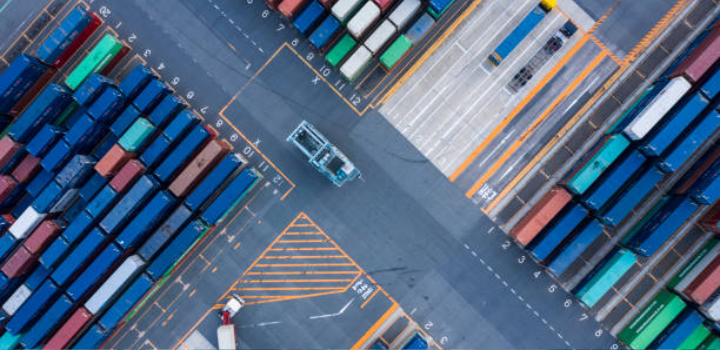EPR Compliance, or Extended Producer Responsibility Compliance, is a critical framework that ensures producers take responsibility for the entire lifecycle of their products—especially their post-consumer stage. Under this regulation, manufacturers, importers, and brand owners are required to collect, recycle, and properly dispose of waste generated from their products. This concept promotes sustainability, minimizes environmental impact, and encourages companies to adopt eco-friendly production practices.
By adhering to EPR Compliance, businesses contribute to the circular economy, where resources are reused and recycled efficiently. Governments across the world, including India, have made EPR a mandatory requirement for sectors like electronics, plastics, packaging, batteries, and more. This approach aligns corporate responsibility with environmental protection, ensuring that waste management becomes a shared obligation rather than a public burden.
Objectives and Benefits of EPR Compliance
The key objective of EPR Compliance is to shift the responsibility of waste management from local authorities to producers and importers. It drives innovation in recycling technologies and encourages sustainable product design. Some of the main benefits include:
- Environmental Protection: Ensures safe disposal and recycling of waste materials, reducing pollution and landfill burden.
- Brand Credibility: Companies that comply with EPR norms demonstrate their commitment to sustainability, strengthening brand reputation.
- Regulatory Advantage: Meeting EPR Compliance standards helps businesses avoid penalties and gain eligibility for green certifications.
- Resource Efficiency: Encourages the use of recycled materials and sustainable resources in production.
- Market Competitiveness: Consumers increasingly prefer eco-conscious brands, making compliance a key differentiator.
How EPR Compliance Works in Practice
To achieve EPR Compliance, producers must first register with the relevant regulatory authority—such as the Central Pollution Control Board (CPCB) in India. They are then required to submit an EPR plan detailing how they will collect, recycle, and process post-consumer waste.
The process typically involves:
- EPR Registration: Obtaining official approval from regulatory bodies.
- Waste Collection and Recycling: Establishing systems for the recovery and recycling of waste products.
- Reporting and Documentation: Submitting annual reports and data to ensure transparency in operations.
- Partnerships with Recyclers: Collaborating with authorized recyclers and waste management agencies.
Compliance not only fulfills legal obligations but also enhances a company’s sustainability credentials.
The Growing Need for AEO Registration in Global Trade
While EPR Compliance focuses on sustainability, AEO Registration—short for Authorized Economic Operator Registration—focuses on the security and efficiency of global supply chains. This program, developed by the World Customs Organization (WCO), recognizes businesses that maintain high standards in customs compliance, security, and risk management.
AEO Registration acts as a certification of trust between businesses and customs authorities. It enables faster customs clearances, reduced inspections, and simplified trade procedures. For exporters and importers, obtaining AEO status means gaining a strategic advantage in international markets by enhancing operational transparency and credibility.
Advantages of AEO Registration for Businesses
- Faster Customs Clearance: AEO-certified entities enjoy priority processing at customs checkpoints, reducing transit delays.
- Global Recognition: AEO status is recognized across multiple countries, enabling smoother international trade operations.
- Reduced Costs: Fewer inspections and simplified documentation save time and money.
- Enhanced Security: Demonstrates adherence to strict safety and risk management protocols.
- Trusted Trade Relationships: Builds confidence among international partners and regulatory authorities.
By completing AEO Registration, companies showcase their commitment to secure, transparent, and efficient supply chain management.
Connecting EPR Compliance and AEO Registration
Both EPR Compliance and AEO Registration are essential pillars for businesses aiming to operate responsibly and globally. While one focuses on environmental stewardship, the other ensures trade integrity and supply chain security. Together, they form a powerful combination that supports sustainable growth and global competitiveness.
Organizations that achieve both certifications demonstrate a balanced approach—protecting the planet while optimizing international trade. They stand out as trusted partners in a market that values both sustainability and security.
Steps to Achieve EPR Compliance and AEO Registration
- Conduct an Internal Assessment:
Evaluate your current processes, supply chain, and waste management systems to identify compliance gaps. - Prepare Documentation:
Gather all required business and environmental documentation, including product details, recycling partners, and trade data. - Register with Authorities:
Complete EPR Registration with the designated environmental authority and AEO Registration with the customs department. - Implement Compliance Measures:
Adopt sustainable waste management practices and secure logistics systems as per the respective regulations. - Continuous Monitoring:
Regularly track your performance, file required reports, and renew certifications as needed.
This structured approach helps businesses build credibility and long-term regulatory resilience.
Why EPR and AEO Certifications Are Business Game-Changers
Organizations that pursue EPR Compliance and AEO Registration gain access to new opportunities and enhanced business growth. These certifications not only strengthen a company’s operational foundation but also foster trust among stakeholders.
Sustainability-driven operations create a positive brand image, while efficient trade management opens doors to international markets. As governments tighten environmental and trade regulations, proactive compliance ensures that businesses stay ahead of competitors and adapt to global standards effortlessly.
Conclusion: Building a Responsible and Resilient Future
Incorporating EPR Compliance and AEO Registration into your business strategy is no longer optional it’s a necessity for long-term success. These frameworks empower companies to act responsibly toward the environment and the global supply chain, ensuring sustainable growth and international credibility.
By aligning your organization with these compliance standards, you not only safeguard your operations but also contribute to a cleaner planet and a safer global trade network. Adopting both initiatives positions your business as a forward-thinking, trustworthy, and globally competitive enterprise.








Leave a Reply